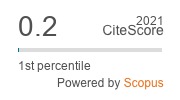Effectiveness of Geo Gebra in Teaching Theorems and Postulates in Geometry
DOI:
https://doi.org/10.17762/msea.v71i4.1726Abstract
The development of technology has opened opportunities for both parties to use the tool as a means of supporting the educational process. The purpose of this article is to thoroughly assess GeoGebra's effectiveness as an information and communication technology (ICT) and as a digital technology integration in mathematics learning. Further, this paper is based on the results of a 1-week experiment in teaching and learning the initial postulate and theorems of geometry. The effectiveness of the ICT tool was explored through the use of a quasi-experimental approach with 46 students divided into two groups. A group of 20 students used the GeoGebra software, while another 20 students used the conventional method to learn mathematics. The data were collected, analyzed, and interpreted by using mean, standard deviation, and a t-test to determine the students' achievement in the initial postulates and theorems in geometry. The findings revealed that there was a higher mean score in achievement in mathematics for the experimental group (teaching with ICT) than for the control group (without using ICT). Thus, the use of ICT, particularly GeoGebra, is an effective tool to increase achievement, promote curiosity and creativity, make clear sense of concepts, and encourage the overall learning of students in mathematics.




